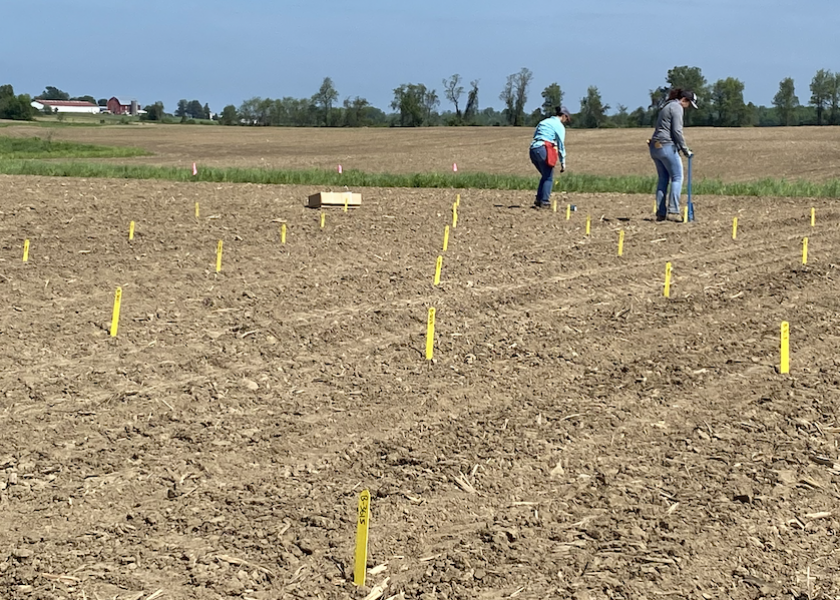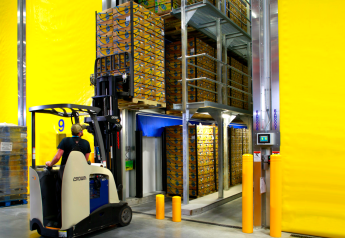The high price of NY farming post-pandemic (hopefully)

NEW YORK STATE — The crops may turn out just fine this year in New York, but that’s about it. Growers and packers are wading through a mounting stack of woes in every other aspect of the business.
“Labor, labor, labor, freight, freight, freight,” said Dylan Dembeck, director of operations at Minkus Family Farms, New Hampton.
Almost all input costs are up, said Brian Reeves, president of New York State Vegetable Growers Association and partner at Reeves Farms.
“In the face of it, the chains are telling us ‘You gotta lower your prices,’” Reeves said. “Our containers are up, fuel’s up, our labor’s up. You can’t get blood from a stone.”
Plus, New York growers have been under the 60-hour overtime rule since a 2019 labor law went into effect Jan. 1, 2020, which requires all farmworkers, even foreign visa farmworkers, to earn time and a half for working more than 60 hours a week, according to A Farmer’s Guide to the New York State Department of Labor. Before this rule, agriculture workers were exempt from federal overtime laws.
As the state’s minimum wage increases to $15, that means $22.50 an hour, plus free housing, utilities and transportation for H-2A workers, Reeves said.
The state’s Farm Laborer Wage Board decided on Dec. 31, 2020, to delay — because of the COVID-19 pandemic — until November 2021 a ruling on whether or not the threshold for farmworker overtime pay should be reduced from 60 hours a week to 40 hours.
The 2019 labor law also requires employers to offer one day of rest per week, and if employees decide to work that day, employers are required to give 100% overtime that day.
So, it’s essentially a mandatory day of rest, Reeves said.
“They sacrifice time from their families to come thousands of miles to work and make 10 times what they can make there in Mexico or Guatemala, and they want to work,” he said. “They don’t want this either.”
For Reeves Farms, the strategy is limit all workers, including H-2A labor, to less than 60 hours a week, and to hire more H-2A workers to fill the extra hours. Reeves went from 52 H-2A workers for many years to 63 in 2020.
“Every day, nine guys were sitting in the house. That left us with 54 out in the field,” he said. In 2021, he hired 68 H-2A workers, which means 10 men stay in the house on a given day and 58 work.
The farm is building new housing, which is bigger, as well. But each new hire costs about $1,000 in travel and recruitment fees, plus housing during their work stay.
“There’s a point where some say: ‘Heck with it. I’ll just pay the overtime,’” Reeves said.
Almost everyone is struggling to find labor, trucks and anything else needed to get the job done, said Jason Turek, partner at Turek Farms, King Ferry.
“This year, everything is out of whack,” Turek said. “We’re fighting battles I didn’t think we’d have to fight.”

Instead of a $4,000 freight fee to take produce from Florida to New York, it’s about $6,500, he said.
“I put box orders in in January because I had a feeling things would be dicey with this and labor, and we’re still struggling to lock in that we’ll have boxes when people tell us we’ll have them. Pallets are hard to find—we’re squirreling them away. RPCs are pretty nonexistent.”
Turek Farms had planned to transition its sweet corn from wooden crates to boxes that are 100% environmentally friendly, but resin is affected by all these shortages, and a box that was $1.70 is now $2.40.
Box suppliers couldn’t get the resin, which Turek thinks is a result of oil refineries shut down during Texas’ winter storms and electric outages.
“It’s a weird chain of events,” he said.
Paulette Satur, founder and CEO of Satur Farms in the North Fork region of Long Island, has managed to transition the foodservice half of business to retail during the pandemic closures, but even as that situation improves, there are all the other challenges.
“Every aspect of our operation is affected by the current economic conditions, but from labor to the cost of inputs, the increase in costs has been particularly annoying,” Satur said.
It’s been unpredictable and an anxious time last year and going into 2021, said Shannon Kyle, who handles sales and marketing for Torrey Farms, Elba.
“Everything is hand to mouth. Costs are up. Some of it’s COVID. Some of it’s supply and demand. You’re playing catch-up with plants shut down, and it’s affecting petroleum, which affects plastic,” Kyle said.
The driver population is getting older, and new people aren’t seeking jobs in these industries, she said. Also, the New York dairy industry is taking a lot of the refrigerated truck demand. Then there’s the regulatory climate.
Since the Electronic Logging Device mandate went into effect a few years ago for trucks, drivers can’t turn loads like they used to because they’re shut down after their hours are over.
Some people have told Kyle they’ve been dealing with freight jumps from $2,400 last year to $6,000 today.
And truck drivers are selective on where they want to go based on tolls and where they can get in and out of easily — not selling points for going to the densely populated Northeast.
“Every day will be a new battle,” Kyle said.







